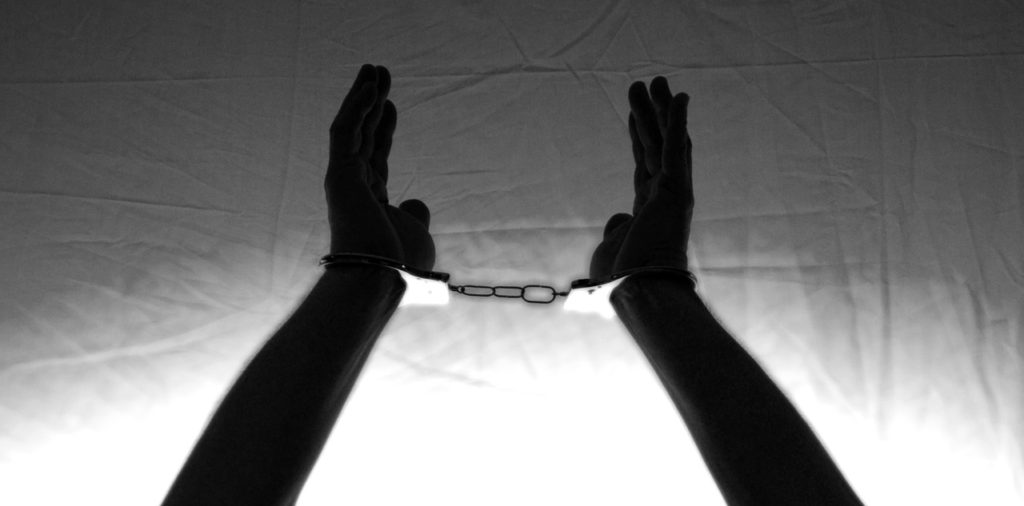- New book explores Canada’s dangerous offender designation - January 11, 2022
- Canada’s extradition laws under attack for many reasons in 2021 - December 24, 2021
- Canada’s extradition procedures in desperate need of an overhaul - November 24, 2021
By Paul Russell, LegalMatters Staff • Lawyers representing dangerous offender defendants face a difficult decision about whether to advise their clients to talk to the court-appointed psychiatrist/psychologist or maintain their right to silence, says B.C. criminal lawyer Gary Botting, author of Wrongful Conviction in Canadian Law.
“Section 752.1 of the Criminal Code specifies that during these dangerous offender hearings, a report must be done by an ‘expert,’ but it doesn’t say what kind of expert,” says Botting, principal of Gary N.A. Botting, Barrister and Solicitor.
“Therefore a mere psychologist – usually with a PhD in psychology rather than an MD with a specialty in psychiatry – is often assigned to complete a report that could put the offender away for life,” he explains.
Botting tells LegalMattersCanada.ca that in 2008, the government changed the dangerous offender laws for those convicted of a serious crime or a series of crimes in a bid to broaden their application and remove discretion from judges.
“That provided a lot of power to two distinct groups of administrative types: Crown counsel and ‘experts’ in psychology or psychiatry,” he says. “The assigned experts write reports that are not sworn documents, but they are taken very seriously by judges – usually at face value.”
Defence counsel can cross-examine the experts under oath about their assessment, but this usually amounts to a rationalization of how they reached their conclusion, Botting says.
Cooperation impresses judges
Some judges in dangerous offender hearings state in their judgments they were impressed that the offender “cooperated with the psychiatrist,” he says, an observation usually followed by a ruling that the person should not be labelled a dangerous offender.
“The converse of this situation is that if the offender refuses to cooperate with the shrink, he is therefore uncooperative, so chalk up one more point in the ‘dangerous offender’ column.”
If the offender declines the invitation to talk, the expert still must submit a report based on the information available, Botting says.
“That usually consists of the findings at trial, the criminal record, and hearsay evidence compiled from whatever remand centres or penitentiaries the individual has been in,” he says.
“Those reports often reflect biases of guards, institutional parole officers and case management officers which goes back years, unfairly bolstering Crown arguments that there has been a pattern of conduct which supports a dangerous offender designation. That is a label no one escapes, as once a dangerous offender, always a dangerous offender.”
‘Dehumanizing’ indeterminate sentences
The worst part of such a designation is that it allows judges to impose indeterminate sentences that by definition give no assurance as to when the individual will qualify for parole, Botting says
“That is so dehumanizing,” he says. “In this sense, the punishment is worse than a life sentence with a fixed period of parole – the punishment meted out to murderers.”
Botting says there are valid reasons for the offender not to talk to the expert, especially if they are planning to appeal the conviction.
“If the individual tells the expert that he intends to appeal the decision of the trial judge – who also presides over the dangerous offender proceeding – that may cause the judge to decide to agree to the dangerous offender designation, as that will make the conviction appear appeal-proof,” he notes.
In cases where clients have admitted guilt and do not intend to appeal, Botting says he usually suggests they talk to the expert, but keep the conversation as general and relaxed as possible.
“This approach is by no means foolproof, as psychiatrists are always wary of inmates who pander to them, and will state their suspicions in their report,” he says. “The strategy of these experts is often to catch the offender off-guard, or to elicit unguarded feelings which are taken as ‘truth,’ just as much as the results from their various psychological tests.”
Botting says the most notorious of these tests is the Hare Psychopathy Checklist, used to rate a person’s psychopathic or antisocial tendencies.
Tests carry weight with judges
“The various tests used by the experts are blunt instruments indeed, but carry a lot of weight with judges,” he says. “Average people who had unhappy childhoods, came from divided homes or who have been tempted to engage in petty squabbles at a young age will not fare well in such checklists.”
While everyone has a right to keep silent when they are first charged with a crime, he says that changes once convicted.
“The accused, now the ‘offender,’ still has the right to silence, but he maintains that silence in a dangerous offender proceeding at his own peril,” Botting cautions.
To make the system fairer, he says the judge handing down the conviction should not be the one deciding on the dangerous offender designation.
“I am strongly in favour of an entirely new judge being assigned to conduct the dangerous offender hearing rather than the one who has already kicked the conviction can,” Botting says.
“The Criminal Code should be changed accordingly,” he adds. “To those who argue that the trial judge is already well-steeped in the details of the case, well, that is my point precisely. Criminal proceedings should be free from bias.”

